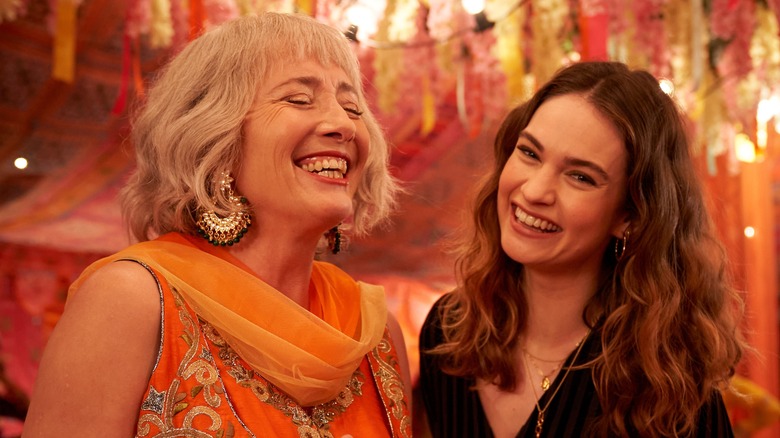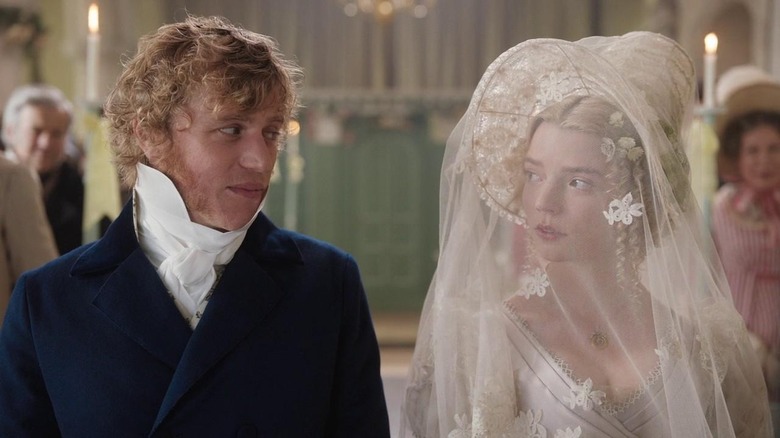Emma Thompson Believes Romantic Comedies Get Unfairly Targeted For Being 'Formulaic'
In the realm of romantic fare, Emma Thompson's judgment is beyond reproach. The experienced actor has lent her talent to Shakespeare and Jane Austen in some of her most memorable roles. And while rom-coms don't seem to be in the heyday they once were in the early aughts, the "Love Actually" actor still goes to the mat in defense of the genre. In a conversation with Variety ahead of her new film, "What's Love Got To Do With It," Thompson has no shame about perpetuating love stories. And nor should she. Love stories give people an outlet, and Thompson rightfully noted that the genre gets criticized more than it deserves. Though everyone knows that the two romantic leads will fall in love in the end, that doesn't negate its value as entertainment.
"Romantic comedies are no more formulaic than any other kind of movie," Thompson pointed out. "We're just ruder about them in the same way as what was described even by Jane Austen as 'stupid female literature.'" It's no big mystery why entertainment consumed and written by women is maligned in culture. Action movies don't get nearly the negative attention as romance films.
And to Thompson's credit, every genre has tropes to adhere to. "But what's interesting is that the male storytelling, the 'this is where I save the world,' it's just as obvious, just as if not more repetitive," Thompson noted.
Classic romance is all about the journey
Television series like medical and crime procedurals have their place in culture, just like anything else. Episodes follow a specific formula that viewers find comfort in. Romance is no different, and these stories work because it is all about the journey. Jane Austen nearly perfected the marriage plot, but her stories are much more intricate than some may give her credit for. Look past the Victorian speak, and you'll be able to acknowledge the wit and satire evident in her books. Austen wove sarcasm deftly through her material, and always made a point about the two lovers getting together in the end.
Elizabeth Bennet's marriage to Mr. Darcy was all about looking past her preconceived notions. The act of loving him made her surpass being prejudicial and become a better person. Emma Woodhouse also finds character development through her romantic trials. She learns to be less selfish and meddlesome. Thompson herself stated that love stories such as these are not necessarily straightforward.
"Even George Eliot, who was one of the greatest intellects of her time, wrote books where two people at the end who want to get married, get married, like Dorothea and Will Ladislaw," Thompson explained. "And yet, the journey towards it is absolutely fraught, and also fascinating. There is this incredible portrait of human life. It's just a kind of hook, isn't it?"

